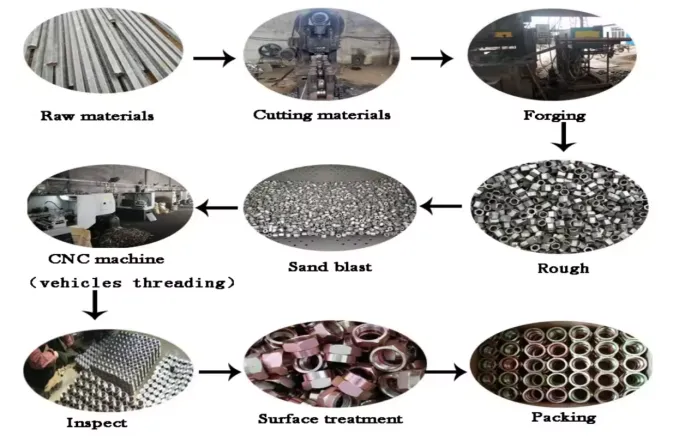3 月 . 05, 2025 06:42 Back to list
Common Nail
Screw nails, often overlooked in the realm of fasteners, play a pivotal role in countless construction and woodworking projects. Their unique design combines the penetration efficiency of nails with the holding strength of screws, addressing many conventional fastening challenges. For industry professionals and novices alike, understanding the diversity in types of screw nails is crucial for optimized application and sustainability in any building endeavor.
The advent of collated screw nails has streamlined the construction industry, particularly in high-volume projects. Collated nails are grouped in strips or coils and are designed for use with nail guns, facilitating rapid firing and consistent placement. This is particularly advantageous in roofing and framing, where labor efficiency is key. Furthermore, the precision of the nail placement reduces material wastage and ensures consistent quality across the project. Eco-conscious builders are increasingly leaning towards coated screw nails. These nails are treated with a layer of protective material, typically vinyl or galvanization, which enhances their life span and minimizes the need for frequent replacements. Coated nails not only lower the environmental impact by reducing consumption but also improve project economics through decreased maintenance costs. From a safety perspective, self-drilling screw nails offer a compelling advantage. Designed to drill their pilot holes as they are driven, these nails minimize the risk of material splitting and enhance joint integrity. This feature is especially useful in delicate or thin materials where precision is critical, such as in cabinetry or finer woodworking projects. Understanding the various types of screw nails and their applications enables constructors to choose the most appropriate fastening solution, aligning with project specifications, environmental conditions, and long-term maintenance plans. By selecting the proper screw nail, not only is project quality ensured, but the durability and safety of the structure are also maximized. Through thoughtful selection and application, screw nails do not merely serve their primary function of joining materials but also contribute significantly to the sustainability and efficiency of modern construction practices. Their evolution continues to reflect advancements in construction technology, emphasizing adaptability and innovation in meeting the ever-evolving demands of building design and implementation.


The advent of collated screw nails has streamlined the construction industry, particularly in high-volume projects. Collated nails are grouped in strips or coils and are designed for use with nail guns, facilitating rapid firing and consistent placement. This is particularly advantageous in roofing and framing, where labor efficiency is key. Furthermore, the precision of the nail placement reduces material wastage and ensures consistent quality across the project. Eco-conscious builders are increasingly leaning towards coated screw nails. These nails are treated with a layer of protective material, typically vinyl or galvanization, which enhances their life span and minimizes the need for frequent replacements. Coated nails not only lower the environmental impact by reducing consumption but also improve project economics through decreased maintenance costs. From a safety perspective, self-drilling screw nails offer a compelling advantage. Designed to drill their pilot holes as they are driven, these nails minimize the risk of material splitting and enhance joint integrity. This feature is especially useful in delicate or thin materials where precision is critical, such as in cabinetry or finer woodworking projects. Understanding the various types of screw nails and their applications enables constructors to choose the most appropriate fastening solution, aligning with project specifications, environmental conditions, and long-term maintenance plans. By selecting the proper screw nail, not only is project quality ensured, but the durability and safety of the structure are also maximized. Through thoughtful selection and application, screw nails do not merely serve their primary function of joining materials but also contribute significantly to the sustainability and efficiency of modern construction practices. Their evolution continues to reflect advancements in construction technology, emphasizing adaptability and innovation in meeting the ever-evolving demands of building design and implementation.
Next:
Latest news
-
Secure Your Roof with Quality Roofing Nails
NewsNov.04,2024
-
Secure Your Property with Quality Field Fencing
NewsNov.04,2024
-
Enhance Your Space with Quality Mesh Fencing
NewsNov.04,2024
-
Discover the Versatility of Iron Wire for Your Projects
NewsNov.04,2024
-
Discover the Versatility of Common Nails for Your Projects
NewsNov.04,2024
-
Discover Quality Hydraulic Fittings for Your Applications
NewsNov.04,2024









